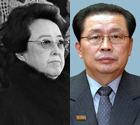张业遂大使在乔治·布什总统图书馆演讲英文版
No. 4: We must properly handle differences and disagreements.
In the history of China-US relations, the relationship would be smooth and stable when the core interests of both sides are taken seriously and taken care of, and would be less so and even strained when they are not.
The question of Taiwan is critically related to China's sovereignty and territorial integrity. It is an issue that the Chinese people feel strongly about. Last month, the United States announced another large-scale arms sale to Taiwan. This has seriously interfered in China's internal affairs, undermined China's security and damaged the China-US relations. We urge the US side to fully implement its commitments made in the three Joint Communiqués, especially the August 17 Communiqué, and take real actions to uphold the larger interest of China-US relations and peace and stability across the Taiwan Straits.
Our economic and trade relationship is so big and expanding so fast that it is only normal to have problems. But, to politicize economic problems will not work. To blame the RMB exchange rate for the trade imbalance and to subsequently invoke protectionist measures will only push China and the US toward the brink of a "trade war," which is exactly what we should avoid when confronted with a sluggish world economy and international financial instability.
We recognize that there is trade imbalance between China and the United States. Such imbalance is caused by a combination of factors, including the structural trade and investment differences, divergent patterns of saving and consumption, and the international division of labor, rather than an issue of the RMB exchange rate. In fact, the RMB has appreciated by nearly 30% since the reform of its exchange rate regime started in July 2005. However, between 2005 and 2011, the US unemployment rate increased from 5.1% to 9.1%. This proves that RMB appreciation alone will not help reduce the trade imbalance, nor will it help lower unemployment rate in the US.
We do not seek large trade surplus with the US. We have taken steps to import more from the US in an effort to address the imbalance. Domestically, we are working to improve our legal framework, strengthen IPR protection, and provide a favorable and level playing field for foreign businesses in terms of indigenous innovation and government procurement. It is important that the US side takes similar steps to ease the restrictions on high-tech exports to China, and provide an open and friendly environment for Chinese investment which can contribute to the US economy and employment.
Recently, in the United States, there has been a lot of interest in China's "rise". Some people see the rise more as an opportunity, while others regard it more as a threat. Some even suggested to contain China. Many people have debated the pros and cons of the China phenomenon.
The People's Republic of China has gone through an extraordinary journey in the 62 years since it was founded, particularly over the past 32 years of reform and opening up. China is now the second largest economy, the largest exporter and the biggest emerging market in the world. More than 300 million people in the rural areas have been lifted out of poverty. The average life expectancy has increased from 35 in 1949 to 73.5 years in 2010. The living standards, educational and cultural levels of the Chinese people have greatly improved.
However, despite China's impressive achievements, it is still a developing country in the true sense of the word. Our per capita GDP is only US$4,400, 1/10 of that of the US and ranks behind 100th in the world. Based on the UN standard of one dollar a day, 150 million Chinese are still living under the poverty line. Unbalanced development exists between the urban and rural areas and among different regions; the structural problems in economic and social development remain acute; and economic growth, which excessively depends on resource input, is increasingly constrained by resource shortages and environmental problems. China's social security system is inadequate, lagging far behind those of the developed countries. There is clearly a long way to go.
China has chosen and will remain firmly committed to the path of peaceful development, which is defined as follows: China should develop itself through upholding world peace and contribute to world peace through its own development. It should achieve development with its own efforts and by carrying out reform and innovation; at the same time, it should open itself to the outside and learn from other countries. It should seek mutual benefit and common development with other countries in keeping with the trend of economic globalization, and it should work together with other countries to build a harmonious world of durable peace and common prosperity.
What has happened has already proved and will prove that China's peaceful development not only brings tangible benefits to the people of China, but also can positively contribute to the well-being of the rest of the world.
China cannot develop itself in isolation from the world. We have worked closely with the international community and played an important role in promoting world economic recovery and global financial stability. Steady and relatively fast growth of China's economy is in itself an important contribution to the world economy.
In recent years, China has contributed to over 10% of the world economic growth, over 12% to international trade. In the next 5 years, China's imports will reach US$10 trillion, providing further opportunities to farmers, manufacturers, and workers in other parts of the world.
China is the only nuclear-weapon country that has publicly stated that it will not be the first to use nuclear weapons, or use or threaten to use nuclear weapons against non-nuclear-weapon states or nuclear-weapon-free zones. China has taken an active part in international cooperation in anti-terrorism and non-proliferation. China has played a constructive role in addressing such international and regional issues such as the Korean nuclear issue and Iranian nuclear issue. China has sent 210,000 peacekeeping personnel to 30 UN operations, more than any other permanent members of the UN Security Council.
We have actively participated in the G20 process, and will continue to encourage it to move from a crisis responding mechanism to a platform for international economic governance. China's increase in the quota and voting power in the World Bank and the IMF will enable us to play a more constructive role in improving world economic governance and economic rebalancing. We will continue to support the Doha round of talks for a balanced and win-win multilateral trading system with universal benefit. China is the first developing country to formulate and implement the National Climate Change Program. We will stick to international climate change negotiation, and work with others to protect our globe based on the principle of common but differentiated responsibilities.
We have reached out to our neighbors to build political trust through security dialogue and military exchanges. We have solved border issues with 12 neighboring countries sharing land border with us. We support the freedom and security of navigation in the South China Sea, and have worked with the relevant parties to promote maritime security cooperation. China is committed to peacefully resolving the maritime disputes with relevant countries through bilateral negotiations and friendly consultations.
China and the US share broad common interests in the Asia-Pacific. We respect the legitimate interest and presence of the US in the Asia-Pacific, and welcome a positive and constructive role by the US in this region. We support and welcome the United States' participation in the East Asia Summit. We attach great importance to the China-US Asia-Pacific Affairs Consultation and see it as an effective cooperative mechanism to advance bilateral interests as well as the common good for the entire region.
Peace, development and cooperation are common aspirations of mankind. In a world of growing multi-polarity, greater economic globalization and increasing global challenges, countries are brought together more closely than ever before. No country can stand alone.
Together, China and the United States account for about one third of the world economy, one quarter of the world population and one fifth of the international trade. A stable and growing China-US relationship not only serves the fundamental interests of our two countries and two peoples, but also contributes to peace and development of the Asia-Pacific region and the world at large. We have to blaze a trail and create a new model of relationship. I strongly believe that by working together, China and the United States can achieve a lot not only for our two countries, but for the rest of the world.
| |
1
2
|
|
- 社会
- 娱乐
- 生活
- 探索
湖北一男子持刀拒捕捅伤多人被击毙
04/21 07:02
04/21 07:02
04/21 07:02
04/21 06:49
04/21 11:28
频道推荐

48小时点击排行
-
624081
1邓小平感叹:华国锋这人选对了 -
256198
2凤凰卫视记者常洛闻带您走进真实的朝鲜 -
67317
3江青与邓小平两败俱伤 毛最终选华国锋 -
47097
4凤凰卫视记者常洛闻带您走进真实的朝鲜 -
41031
5中纪委加强反腐 或选某“大老虎”作突 -
35447
6红墙摄影师:毛泽东的哪些照片曾经不能 -
33436
7阮次山:习近平讲话微妙 连战心中打鼓 -
31006
8评:日本拥核 美日拖垮中国最后王牌

























